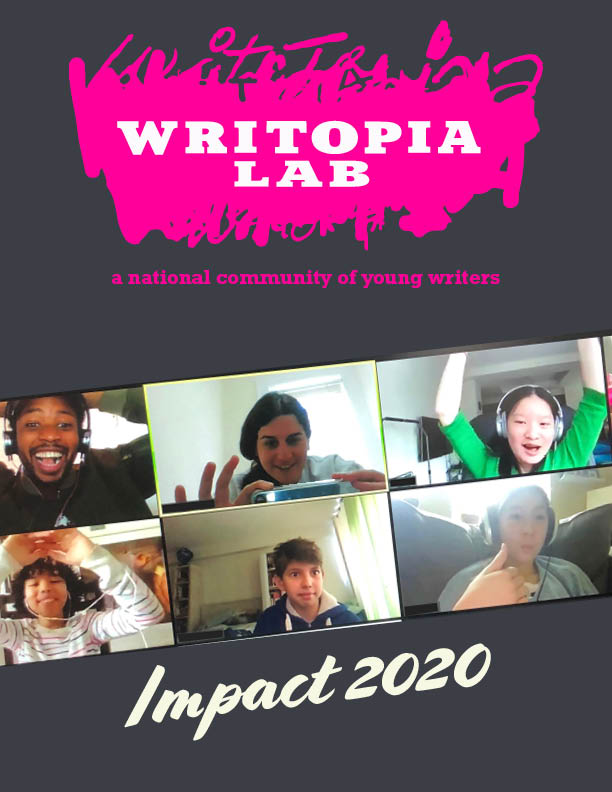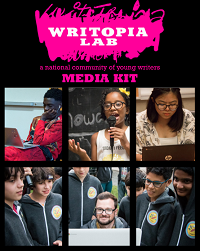In Praise of 'Thought Competition'
By REBECCA WALLACE-SEGALL
November 28, 2007; Page A23
Monday: After a long day at his New York City private school, Ben, 16, heads to my creative writing lab to work on his heartfelt memoir about his parents' bitter divorce. Tuesday: Alison, 15, rushes from her elite private school in the Bronx to work on her short screenplay about a gifted, mean and eccentric boy. Lily, 13, pops in whenever she can to polish her hilarious short story narrated by an insomniac owl.
Ben, Alison and Lily, along with another few dozen who attend my afterschool writing program, also attend top-notch New York private schools that cost upwards of $25,000 a year. So why, one might wonder, do these kids need an extracurricular creative writing coach? The answer is simple, though twisted: Their schools — while touting well-known athletic teams — are offshoots of the "progressive education" movement and uphold a categorical belief that "thought competition" is treacherous.
Administrators of these schools will not support their students in literary, science or math competitions, including the most prestigious creative writing event in the country: the Scholastic Art & Writing Awards. So we at Writopia Lab help these kids to join the 10,000 young literati from across the country who are hurrying to meet the event's January deadline, as well as deadlines for other competitions.
For decades now, psychology and pedagogy researchers have been debating the impact of competition on young people's self-esteem, with those wary of thought competition taking the lead. Most New York parents of public or private school students have felt the awkward reverberations of this trend — which avoids naming winners — when Johnny takes home a certificate for "participation" in the school's science fair. (Do you hang that one up on the wall?)
But some, and ironically those who attend some of the most desirable schools in the region, feel the reverberations in deeper, more painful ways. "Two years after my son left a school that prohibited him from entering a national math competition," says one mother, "he still writes angry essays about why the jocks in his former school were allowed to compete throughout the city while he wasn't allowed to win the same honors for his gifts." Sam, her son, felt uncool in the eyes of his peers, and undervalued (and sometimes even resented) by the administration.
"We don't want kids to compete individually, put themselves in vulnerable positions as individuals," explains a leading administrator. "They can compete within teams," explains another. "So the focus is on community building rather than on personal value."
But what about Sam's sense of personal value? Aren't human beings fabulously varied in their gifts and sensibilities? Excellent teamwork can be important, but is it the only admirable achievement? Should any school in the United States prevent broader acknowledgment of a young, creative mathematician?
Mel Levine, a professor at the University of North Carolina and one of the foremost authorities in the country on how children learn, believes the impact of the collaborative education movement has been devastating to an entire generation. When students are rewarded for participation rather than achievement, Dr. Levine suggests, they don't have a strong sense of what they are good at and what they're not. Thus older members of Generation Y might be in for quite a shock when they show up for work at their first jobs. "They expect to be immediate heroes and heroines. They expect a lot of feedback on a daily basis. They expect grade inflation, they expect to be told what a wonderful job they're doing," says Dr. Levine.
What is most surprising about the brand of educational progressivism that denies creative and innovative teens the right to compete for public acknowledgment is the seeming lack of interest in distinguishing between positive or negative competitions. Positive competitions award a good number of entries with a range of awards, and, in some cases, send constructive comments back with the manuscripts. Negative competitions, on the other hand, may charge high fees to enter or award only the top three entries.
Last January, 28 of my students rigorously workshopped, edited and entered 45 submissions to the Scholastic event, and 28 pieces won recognition on the regional level and another five on the national level. In April, 24 of these students went to New York University to have honors bestowed upon them by famous writers, and another five went to Carnegie Hall to receive national awards.
Still, students would quietly ask me over the following year why one of their pieces was or wasn't recognized. We would compare how much time they put into one piece over another, the risks they took in one, the original elements of another, and how new a genre was to them. But most importantly, the conversation turned to a defining aspect of an artist's world: the reign of arbitrary judgment. My students know that they don't each share the same response to their peers' work, and they proudly tout individually refined sensibilities. So the real questions they should be asking themselves are: Did they try their best? Have they learned in the process? Are they excited to try again?
The goal of positive competitions is to help young people identify their strengths, overcome their limitations to the best of their ability, and process their disappointments. Luckily, there is an extraordinary range of projects — both collaborative and competitive — that inspire kids to produce their best work, bond with their peers and prepare fully for adulthood.
Ms. Wallace-Segall is a New York-based writer.


